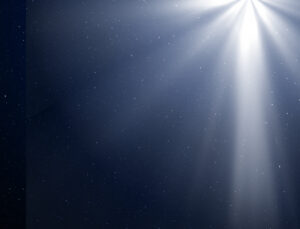 “The people walking in darkness have seen a great light; on those living in the land of deep darkness a light has dawned” (Isaiah 9:1-2). There is a paradox in the life of faith. We believe that through faith in Christ we can have a relationship with God, who dwells in light inaccessible, and whose wisdom transcends any human wisdom. In the words of the Nicene Creed, we believe that Christ is “God from God, Light from Light, true God from true God.” This Sunday, we will celebrate the Great Light that can illuminate and renew our world.
“The people walking in darkness have seen a great light; on those living in the land of deep darkness a light has dawned” (Isaiah 9:1-2). There is a paradox in the life of faith. We believe that through faith in Christ we can have a relationship with God, who dwells in light inaccessible, and whose wisdom transcends any human wisdom. In the words of the Nicene Creed, we believe that Christ is “God from God, Light from Light, true God from true God.” This Sunday, we will celebrate the Great Light that can illuminate and renew our world.
On occasion we human beings all feel as if we are walking in a great darkness separated from the True Light of God’s Presence. Our human plans are unfulfilled and seemingly blocked. Our well-meaning prayers are unanswered. Our most important relationships are troubled. Our employment is uncertain. Our character flaws seem impossible to overcome. In such situations, we can easily feel overwhelmed. Our sin and selfishness seems unescapable and devastating to our hopes and dreams.
When we “walk through the valley of the shadow of death,” physically or symbolically, the assurance that there is a God of Mercy and Love who cares for us makes an incredible difference. The blessings of God may be delayed. The salvation of God may be impossible to humanly predict. The darkness may seem impenetrable. But, the Creating and Renewing God who can do anything is still there.
How can we human beings know this? There is more than one reason, but the reason we celebrate at Christmas is this: Because God sent his one and only Son into the world, we can know that the Divine Presence is never far from us in steadfast and self-giving love, even if we cannot sense its reality at the moment.
In The Nature and Destiny of Man, Reinhold Niebuhr puts it this way:
In Christian faith, Christ mediates the confrontation of the self with God; for it is in Christ that the vague sense of the divine, which human life never loses, is crystalized into a revelation of divine mercy and judgement. In that revelation, fear of judgement and hope of mercy are so intermingled that despair induces repentance and repentance hope. [1]
All human beings are strange conglomerations of darkness and light, of good and evil, of love and indifference, of justice and injustice, of diligence and laziness, and the like. We are all imperfect creatures, made in the image of God but in whom that image has been defaced to some degree. Nevertheless, God loves us and desires for us to be restored to the original image placed within every one of us.
At Christmas, we celebrate the mystery that the love of God was so great that he bridged the gap between time and eternity, between heaven and earth, between the spiritual and the physical, between love and law, and became one of us, so that we might be restored and become like him. Therefore, this Saturday night, we can all join in singing:
O little town of Bethlehem,
How still we see thee lie!
Above thy deep and dreamless sleep
The silent stars go by;
Yet in the dark street shineth
The Everlasting Light;
The hopes and fears of all the years
Are met in thee tonight. [2]
Copyright 2022, G. Christopher Scruggs, All Rights Reserved
[1] Reinhold Niebuhr, The Nature and Destiny of Man Vol. 2 (Louisville, KY: Westminster John Knox Press, 1986), 109
[2] Phillips Brooks, “O Little Town of Bethlehem” music by Peter Christian Lutkin. (Chicago, IL: C. F. Summy Co., 1867).
